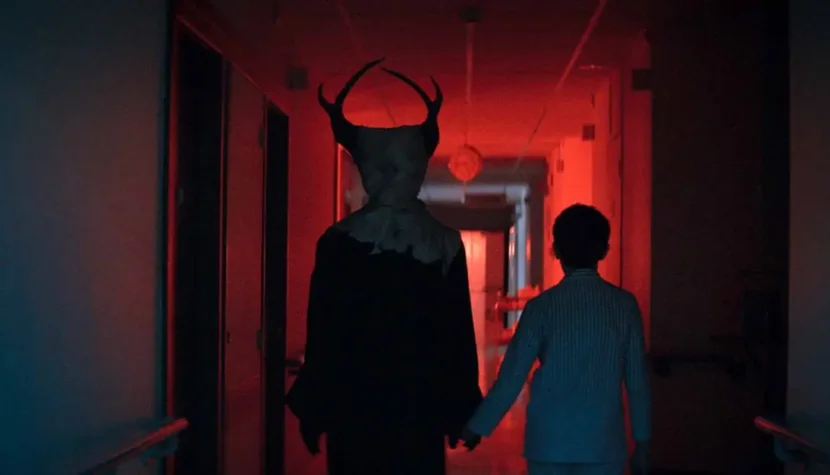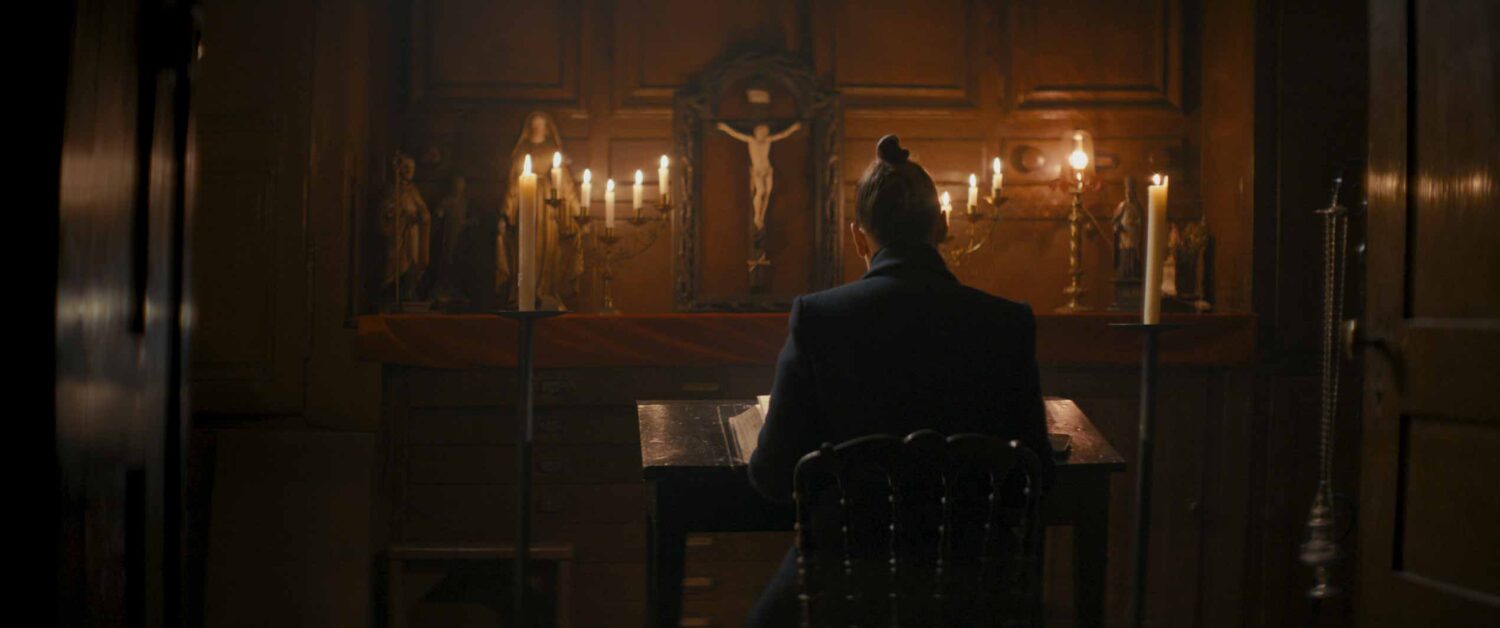THE SOUL EATER. A Procedural Thriller Shrouded in Folk Myths

Since its world premiere in Rotterdam in January 2024, this film has toured numerous film festivals, and before reaching Warsaw for Splat!FilmFest, it had already screened at Gdańsk’s Octopus Festival. Directed by the duo Alexandre Bustillo and Julien Maury, known for the intense home invasion thriller “Inside” (2007), which is part of the New French Extremity movement, the film raised expectations among viewers for uncompromising, brutal cinema that pushes genre boundaries. “The Soul Eater” may disappoint those expecting that level of extremity, as its plot unfolds straightforwardly to the finale, but it still manages to engage and draw audiences into its atmosphere.
Two detectives are dispatched to the sleepy, mountainous village of Roquenoir: French police inspector Elizabeth Guardiano (Virginie Ledoyen) and gendarmerie captain Franck de Rolan (Paul Hamy). Guardiano is assigned to investigate a peculiar double homicide, where it appears the victims fell into a murderous rage without evidence of third-party involvement. Meanwhile, de Rolan is investigating a string of child disappearances. Initial observations reveal no links between the cases, yet—as the title suggests—both are somehow tied to a mythical, otherworldly entity. The “Soul Eater” is a legendary horned creature said to strip humans of their free will, transforming them into rabid beasts.

The film’s premise suggests a conflict where urban rationality, represented by two big-city law officers, meets rural superstition and folklore. The tension is less about a “whodunit” mystery and more about whether the investigators are stepping into supernatural territory or staying within the procedural crime genre’s limits. The source of dread lies in folklore, but within the film’s world, is this fear rational or irrational? The filmmakers skillfully play with this duality, slowly instilling a sense of uncertainty and unease in the audience. “Slowly” is the key word here—viewers shouldn’t expect a fast-paced story, as this is a work built on a stark, oppressive atmosphere.
The script is adapted from Alexis Laipsker’s novel, and while Bustillo and Maury have previously written their own screenplays, this time they relied on a text by Annelyse Batrel and Ludovic Lefebvre. The writing isn’t especially original; character psychology is simplistic, the plot lacks unconventional twists, and the ending doesn’t invite reflections that might elevate the film beyond a classic genre piece. However, it would be unfair to say the film failed to engage me. I watched with interest—there’s a certain power in its narrative simplicity and austere mood that will appeal to fans of dark crime stories. Furthermore, I had hoped that the Irish film “Freawaka” (dir. Aislinn Clarke) would honor the folk horror subgenre, but “The Soul Eater” handled folk motifs in horror more effectively.
The film doesn’t deliver the extreme thrills that the directors’ names might suggest but compensates with a dark, mystical, and gothic atmosphere. There is one intense violent scene in a flashback that might surprise viewers due to the film’s otherwise restrained approach, focused on crime discovery rather than the act itself. Sensitive viewers might find the storyline involving children as victims, as well as the sadistic killing of a dog, particularly distressing. The cast includes two remarkable French actresses, Virginie Ledoyen and Sandrine Bonnaire, but the performances aren’t especially distinctive, largely due to a script that doesn’t offer them much scope. Just as police protocols restrict officers within the boundaries of the law, this film confines the actors within genre archetypes.

Reviews of the film have been mixed—it hasn’t appealed to everyone. For me, “The Soul Eater”—despite its noticeable flaws—remains an intriguing thriller that stands out in contemporary horror as an engaging blend of familiar motifs with lingering questions about whether cold realism will triumph over the spirit of fairy tales and folk beliefs. This is cinema where originality takes a back seat to the art of creating and sustaining suspense and atmosphere for as long as possible. The filmmakers aren’t attempting to revolutionize the genre or veer into arthouse territory, instead drawing from the tradition of French crime films—a genre that has shaped French cinema from its early days.

